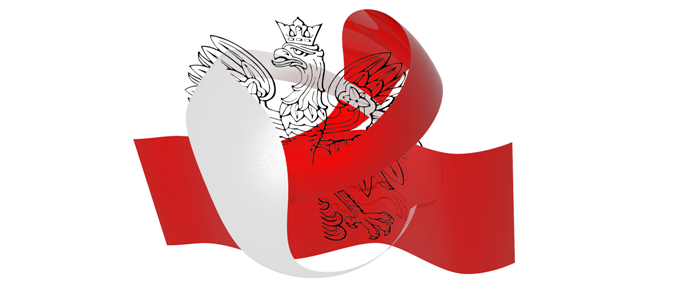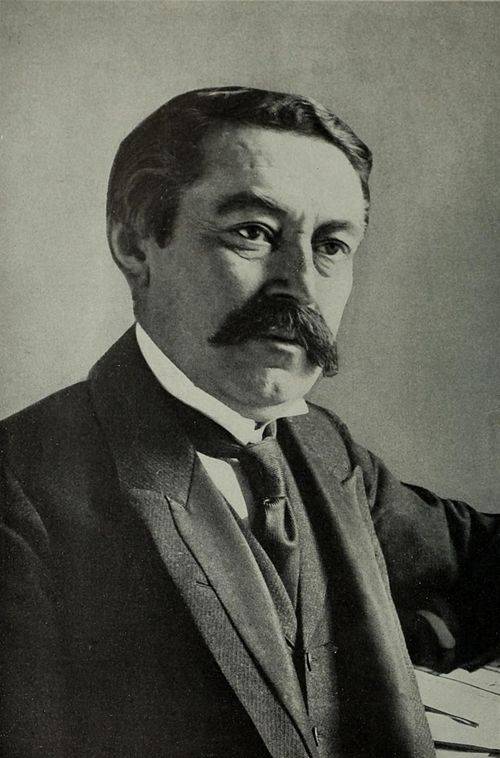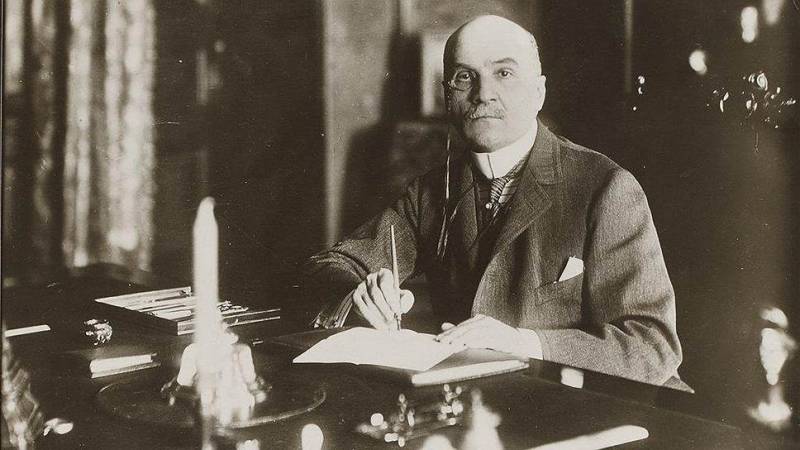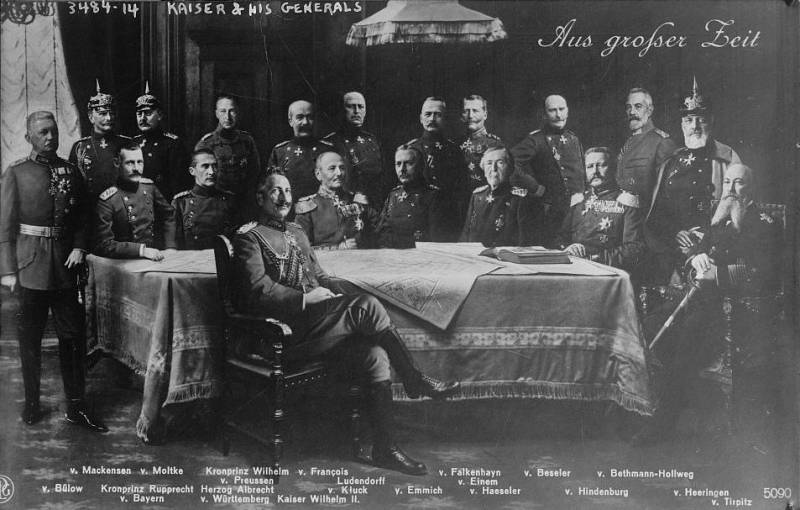1916 year. Poland on the eve of independence
What is the attitude of Germany to the realization of this cherished dream of the entire Polish people? As soon as she and Austria-Hungary succeeded in entering the Kingdom of Poland, they immediately hurried to divide this part of Polish lands, which had been hitherto united, and, in order to somewhat smooth the impression of this new assault on the main subject of all Polish aspirations, they found it appropriate to satisfy some of the side wishes of the Polish population. The opening of the mentioned university is one of such events, but one should not forget that the volume of the proclaimed Polish autonomy head from this very rostrum, by the highest order, naturally also includes the national Polish school of all degrees, not excluding the highest; therefore, one can hardly expect that, because of the lentil soup offered to him by the Germans, the Polish people will abandon their best covenants, close their eyes to the new German enslavement being prepared and forget their brothers in Poznan, where under the rule of the hackists, for the sake of German colonization, everything is stubbornly Polish ”(1).

As soon as Sazonov’s speech appeared in the allied press, Izvolsky hurried to inform Petersburg about the quite correct reaction of French newspapers to the speech of the foreign minister in the Duma, but could not help but note that a number of radical publications were still influenced by the most active part of Polish émigrés. They considered the promise of “autonomy” insufficient, demanding Poland’s “independence”. The Russian envoy, paying tribute to the efforts of the French Foreign Ministry to “restrain” the discussion of this issue, acknowledged that in recent weeks, “propaganda in favor of the idea of“ independent Poland ”has not only not weakened, but has increased markedly” (2).
The ambassador reported that censorship bans on this matter are easily treated, among other things, with the use of Swiss newspapers, and warned that by the time the war ended Russia might face a “strong French public opinion movement that could cause very serious misunderstandings between us and our ally” . The ambassador recalled the background to the issue and, at the beginning of the war, his recognition from the French side was a purely domestic matter - Russian, which, in Izvolsky’s opinion, was associated with enthusiasm among Poles for the appeal of the supreme commander.
However, then the situation changed dramatically - Germany and Austria-Hungary, as an experienced diplomat was forced to admit, not only occupied Poland, but also occupied a better position in the Polish question, forcing the Russians to go beyond simple autonomy. In addition, the very real prospect of a military conscription in the territory of the former Kingdom of Poland itself gave the Polish question an international character.
Further, Izvolsky informed the Foreign Ministry about conversations with representatives of the realist party, who, recognizing the continued need to preserve Poland’s dynastic, economic and military ties with Russia, sought not only for the national unity of the motherland, but for “national independence”. Referring to the note of R. Dmovskiy, the ambassador in Paris noted that realists have no doubt that the time has come to influence Russia through her allies, although they imagine even a “separate” Polish state with the monarch from the Russian ruling house connected with Russia customs Union, but with a separate army, which in the event of war comes at the disposal of the Russian commander in chief.
The diplomat warned the Foreign Ministry that in Parisian government circles “they are beginning to worry much about the news of Germany’s intentions to declare Poland’s independence in order to recruit recruits in occupied Polish districts.” Izvolsky expressed the conviction that Russian diplomacy should “preoccupy in advance that local public opinion should not take the wrong path; otherwise, at a decisive moment, we can easily find ourselves in the present, so important issue, in dangerous disarray with our main ally ”(4).
Nevertheless, Izvolsky and Sazonov, who are completely loyal in the Polish question, continue to leave to interact with the same allies in any form. Indicative of the reaction of Russian diplomacy to the French proposal to hold in response to the German preparations some kind of demonstration of the unity of the allies in an effort to resolve the problem of Polish autonomy. Even the tonality in which Izvolsky reports to St. Petersburg about this attracts attention:

French Prime Minister Aristide Briand
However, the ambassador himself hastened to reassure the Foreign Ministry, citing the telegram from the French Prime Minister he had received from Cambon addressed to the Ambassador to St. Petersburg Maurice Palaeologus, where Aristide Briand immediately ruled out mention of a collective demonstration of the allies
After some time, the pressure of the occupation regime in the Polish lands was still somewhat weakened, and not without a reason. Long-lasting secret Austro-German negotiations began on the Polish issue, about which Russian diplomats quickly became aware. The first reports of this kind came, as might be expected, from Switzerland, where numerous Polish émigrés, for all their diversity of political views, did not cease active contacts both with each other and with representatives of both warring factions. Here is an excerpt from not the first, but extremely indicative telegram No. 7 of the envoy in Bern Bacheraht (obviously - V.R.) to Comrade Foreign Minister Neratov 18 / 5 in January 1916:
Less than two weeks later, Baheraht telegraphed (from 31 January / 13 February 1916 d) Sazonov that he was visited by much more reputable Polish representatives - Roman Dmovsky and Prince Konstantin Broel-Plyatter. After a series of meetings with the German and Austrian Poles, they only confirmed Pilz’s correctness - the Central Powers are ready to give the Kingdom wide autonomy or “half independence” for the sake of a new military set. Moreover, “generally push the Poles away from us.”
Referring to Dmovsky's confession, Izvolsky wrote:
The reporter Svatkovsky, already mentioned above, very promptly informed the Russian Foreign Ministry that a survey was conducted in the Kingdom of Poland, which showed that the entire population of both parts of the Kingdom was strongly on the side of Russia. Based on the survey, the Austrian and German governments abandoned the military recruitment. But, as it turned out later - not forever.
The Polish public figures, returning from Europe "very inspired", expanded their campaign work - the French ambassador to St. Petersburg, Maurice Palaeologus, fell within the scope of their actions.
Maurice Paleologue, French Ambassador in Petersburg
A diplomat who, under other conditions, could well become a key figure in resolving the Polish problem, Paleolog already invited 12 on April 1916 to Polish emissaries for breakfast. The fact that the French were loyal to the autonomy of Poland was not convincing - Paleologue only assured them that Nicholas II "was still liberal in attitude towards Poland." Vladislav Velepolsky, in response to these assurances, Paleologue remarked:
- I am completely calm about the intentions of the emperor and Sazonov. But Sazonov may not disappear tomorrow from the political arena today. And in this case, what are we guaranteed against the weakness of the emperor?
The prince Konstantin Broel-Plyatter mentioned above, at the same time, considered that “Sazonov must take the solution of the Polish question into his own hands and make it international. The French ambassador resolutely rebelled against this thought. According to him, “the proposal to make the Polish question international would cause an outburst of indignation in Russian nationalist circles and would nullify the sympathies that we conquered in other segments of Russian society. Sazonov would also strongly oppose this. And the Stunner gang would have raised a cry against the Western democratic state, which is using an alliance with Russia to interfere in its internal affairs. ”
Maurice Palaeologus reminded the Polish representatives how the French government treats Poland, but made them understand that "his assistance will be the more valid, the less visible it will be, the less official it will be." The ambassador at the same time reminded that "even if only their personal statements (not one of them, not even Stürmer, did not dare to object to the emperor's intentions towards Poland with me) as private opinions, create something of a moral obligation that allows the French government in the final decision to act with exceptional authority ”(9).
The fact that we are talking about the prospect of recreating the "Kingdom of Poland" was made deliberate regular leaks to the press, and on both sides of the front. But immediately after the occupation of the “Kingdom”, that is, long before the beginning of 1916, and actually before the war, the Russian press and without outside help very closely followed the “Polish theme” - in German and Austrian newspapers. Just after the Austro-German invasion, they were added to those publications that during the war years continued to appear in the occupied Polish territories. So, 21 of October (3 of November) “Russian Gazette” referring to “Leipziger Neueste Nachrichten” (of 1 of November) reported that the chancellor’s trip to the main apartment was directly connected with the final decision of the Polish question.
October 23 was already informed about the long meetings of the Polish Kolo in Vienna 17 and October 18, as well as the fact that General Bezleler received the Polish delegation led by Prince Radziwill. Then the same delegation visited Berlin and Vienna.
General Bezaler (in the top row - third from right) among the representatives of the German military elite. In front of the table is Kaiser Wilhelm II
Then it became known that 17 of October at the reception at the Austrian Foreign Minister Burian was attended by the rector of the Warsaw University Brudzinsky, the city mayor (obviously the burgomaster) Khmelevsky, the representative of the Jewish society Lichtstein, and also a former member of the Russian State Duma Lemnitsky. They were not consulted with them, but in fact they were confronted with the fact that they had already taken a decision to proclaim the Kingdom.
In the meantime, the Russian autocracy persistently viewed the “Polish question” as a purely internal one and was in no hurry to put into practice what the grand princely “Proclamation” proclaimed. This is evident even from the quoted words of General Brusilov, as well as from other numerous sources. However, it was “The Appeal” that served as the starting point for further bureaucratic creativity, directed towards the whitening of the very awkward efforts of the tsarist bureaucracy to resolve the Polish problem. But in the course of the whole war, even if a small, but always decisive part of the very bureaucracy, nullifies everything, even timid attempts to implement the noble ideas of the Appeal.
In the end, somewhere around the time of the formation of the “Kingdom”, even to the permanently loyal Endeks, it became clear that the tsarist government not only did not start implementing the promised self-government, but also did not take any measures to destroy the inveterate legal restrictions of the Polish people. The great powers still did not consider the Polish nationalists as equal partners.
And yet, was there a chance to use the “Appeal”, for the ideas of which many Russian soldiers and officers shed their blood wholeheartedly, for the real reconciliation of the Poles and Russians? There was, but those who could realize it, clearly did not want to.
Notes
1. International relations in the era of imperialism. Documents from the archives of the royal and provisional governments 1878-1917. M.1938 (MOEI), series III, volume X, p.398.
2. MOEI, series III, volume X, p. 398-401.
3. Ibid.
4. Ibid.
5. MOEI, series III, volume X, p. 411-412.
6. Ibid., P.412-413.
7. MOEI, series III, volume X, p. 23.
8. MOEI, series III, volume X, p. 198-199.
9. M. Paleolog, Tsarist Russia on the eve of the Revolution. M.1991, p.291.
- Alexey Podymov
- Poles! Entente can sleep peacefully?
The Poles are changing the front. Eve of World War I, the main enemy is Germany
August 1914. Did the Russians know about Poland "from sea to sea"?
1914 Polish legions
Russian Poland: autonomy, as it was said
1915 year. "And let the Poles choose between us and the Germans"


Information